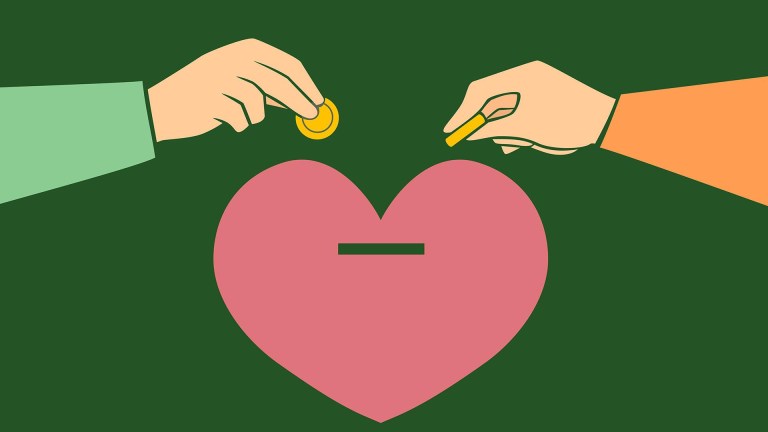Make sure you actually ask your bank for a payment holiday, most have online application forms. Do not just stop paying or your lack of payment will be recorded as arrears.
How much do mortgage holidays cost?
Pausing payments on money you owe is not without cost. You will still need to pay interest. Interest will most likely be added to the outstanding loan that you’re going to have to pay back eventually. Delaying interest owed means paying more in the long run.
Use a calculator, such as the one from mortgage broker Habito, to show the costs of taking time out from your mortgage and decide whether you can afford it.
Covid-19 payment holidays don’t show up on your credit file. However, lenders may still be able to see that you have taken a break from payments. They may judge that you are therefore struggling to manage your money. Some people have already reported this can make it harder to borrow more or remortgage.
Only take a payment holiday if you really need one.
Can you take several mortgage holidays?
If you have already taken the full six months, or are concerned about what will happen at the end of July, talk to your bank as soon as possible. “Good lenders will want to work with their customers to help find a manageable solution,” says Andy Piggott, director of lending products at Metro Bank. “We recognise that homeowners have faced extraordinary circumstances impacting their finances and we are here to help.”
Advertising helps fund Big Issue’s mission to end poverty
Sue Anderson, of charity StepChange, says it may sound scary but it’s better to be honest with your creditors if you’re going to struggle to pay them. “Many will be reasonable and consider temporary payment arrangements, based on what you can afford. If you come to an agreement with them, your creditors won’t feel the need to take further action to recover their debts for the time being.”
If you’re not comfortable calling your creditors, send them a letter. There are template sample letters on the StepChange website.
What payment holidays are banks offering after the deadline?
Nationwide, for example, says it will judge each individual’s needs. It may offer reduced payments, or an extended term, giving you longer to repay.
Nationwide has also pledged not to repossess any homes of those impacted by Covid-19, before the end of May.
Several banks say they may also consider removing interest charges on credit cards and overdrafts. You may also get early access to savings that are in fixed-term accounts, penalty free.
NatWest has a range of options for customers who are struggling to make a repayment. This may include a payment deferral of 30 days “breathing space”, which could be extended.
Advertising helps fund Big Issue’s mission to end poverty
A spokesman for Lloyds says: “If you pay by direct debit then these will start up automatically. If you cancelled it you will need to restart these. You may also be able to switch to a new deal even if you have had a mortgage payment holiday as a result of coronavirus.”
What other help is available if I can’t pay my mortgage?
If you are on state benefits, including Income Support, Pension Credit, Job Seeker’s Allowance, Universal Credit or Employment or Support Allowance, you may be able to get government help for interest payments on your mortgage. Visit gov.uk/support-for-mortgage-interest for more information.
How do mortgage and debt payment holidays affect my credit file?
Covid-19 payment holidays don’t appear on your credit file. However, any further help from a lender may do so. What are the consequences? We asked James Jones, head of consumer affairs at Experian.
“If you’ve already used up your payment holidays and are still experiencing financial difficulties, you should speak to your lenders. They should explain how any new support will be reflected on your credit report.
Lenders should add an arrangement flag on your credit report
“Where new support results in a temporary pause or reduction in regular payments, we would expect the lender to register an ‘arrangement flag’ on a credit report. This should highlight the new temporary payment, and the start and end date of the arrangement. Lenders would then report any monthly payments received. So, for example, if you agreed to meet half of your original payment for four months then you’d emerge two payments in arrears. Your credit report would reflect this.
“Any arrangement flag would remain visible on an Experian report for a few years after the arrangement ended. But the flags themselves are not usually a factor in credit scoring. These flags are, however, routinely reviewed by lenders during a credit assessment. They help ensure lenders are taking the most appropriate action when deciding whether to offer credit.”
Advertising helps fund Big Issue’s mission to end poverty
Missed payments stay on your credit report for six years
“As you would expect, missed payments do affect credit scores and these generally stay on your credit report for six years. Missing a recent payment can reduce an Experian score by around 130 points, but bringing the account back into order the following month will reduce the impact.
Time can be a help too because lenders tend to be most interested in your recent credit activity and behaviour. Even a very negative entry such as a default or court judgment will have less impact on your score as it gets older.”
Don’t apply for too much debt at once, and use an eligibility-checker
If you have negative information in your credit history and are planning to apply for new credit, use an eligibility-checking service to give you a good idea which deals you’re likely to be accepted for. This will help protect your credit score by avoiding applications for credit you’re unlikely to get and, in the process, avoiding multiple credit checks.
Should I consolidate my debt?
Consolidating debt means taking out new credit and transferring all your debts on to a new card or consolidation loan to pay them off. Doing this can help you to reduce the interest you’re paying.
But beware, there are lots of services offering this for a high fee, including scammers taking advantage of anxiety around debt during the pandemic.
Trusted organisations and charities including National Debtline and StepChange will offer you advice and help consolidating your debts, free.
Advertising helps fund Big Issue’s mission to end poverty
Sue Anderson of StepChange says the charity will guide you through the debt consolidation process and, if you prefer, you can do it all online.
Read more from the Big Issue’s Ride Out Recession Alliance and get employment support with the new Jobs & Training Toolkit.










